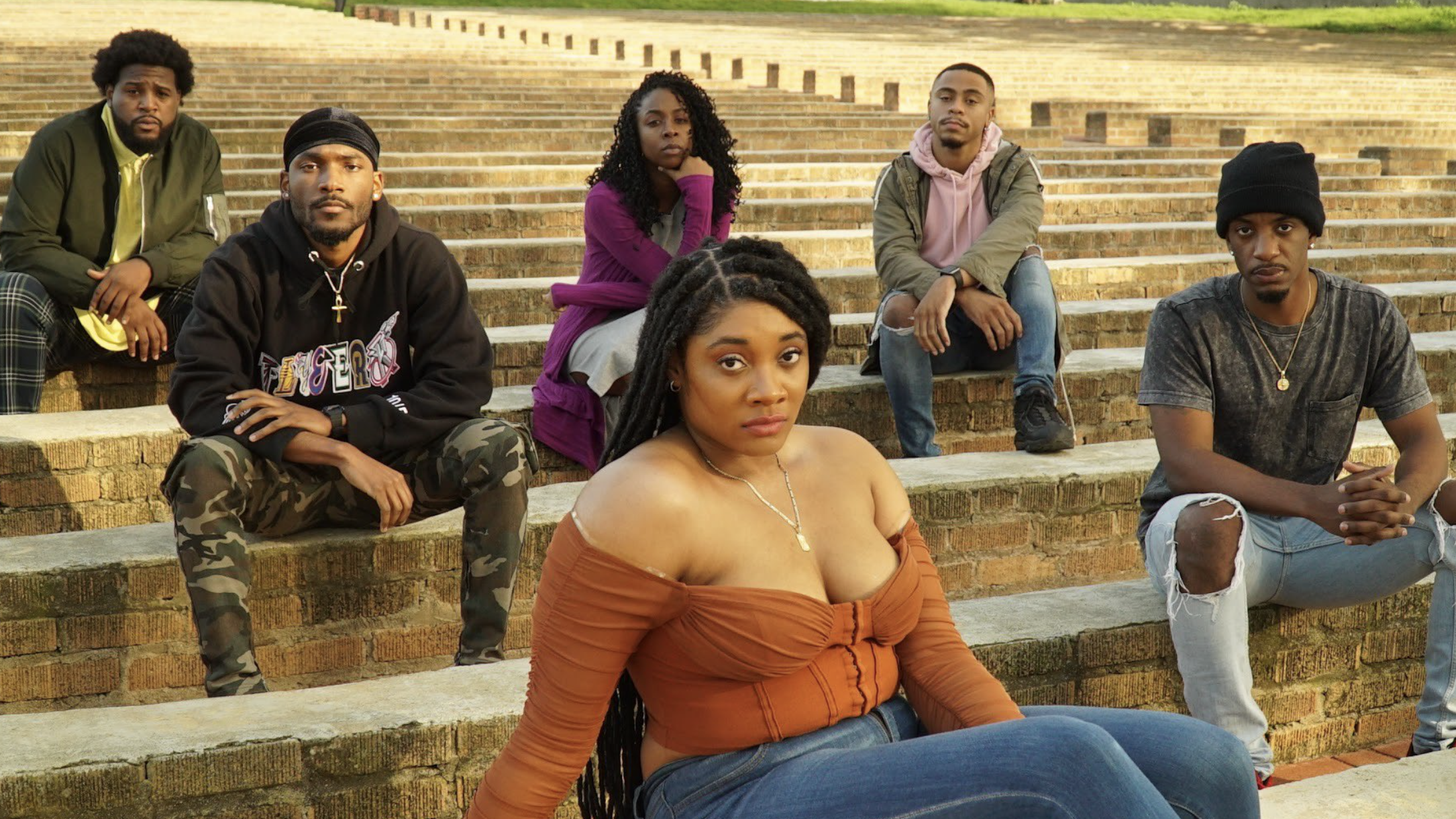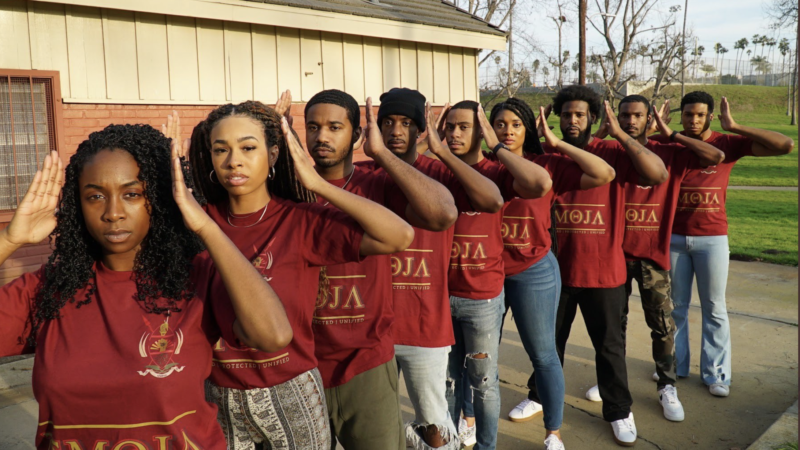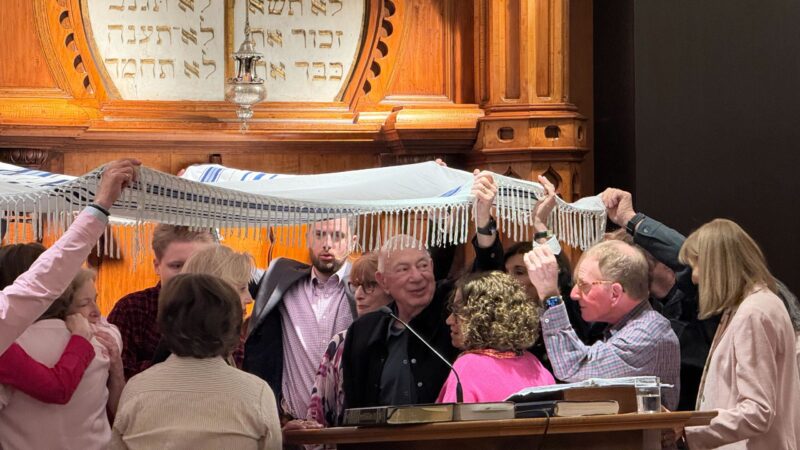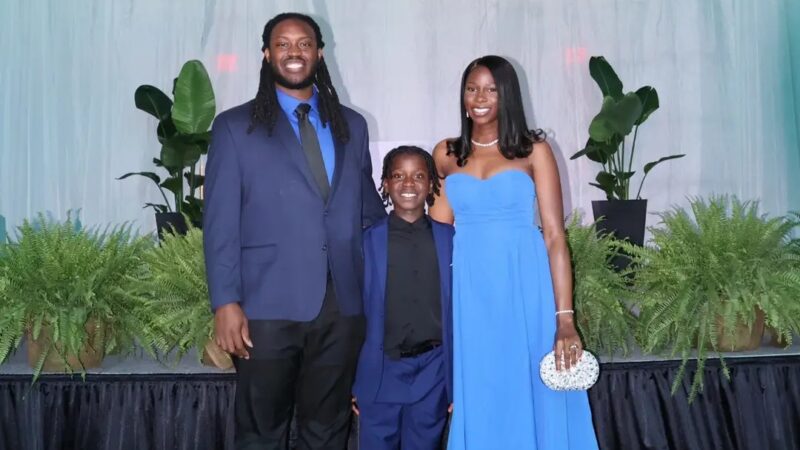Alabama native’s play explores Black student unity through co-ed fraternity
Since the early 1900s, joining a Black fraternity or sorority has been a right of passage for college-educated African Americans. The Greek-lettered organizations started as a source of empowerment for these college students and remain a safe space today.
LaDarrion Williams, a native of Helena, highlights some of those themes in his new play UMOJA, which premiered last month in Los Angeles. The play is centered on a group of Black college students at the fictitious McMillian University, a small, mostly-White Christian college in Birmingham. They start a co-ed fraternity.
“Secrets fly out,” Williams explains, “A scandal happens on the campus that basically forces them to band together, but also causes them to have a rift in their friendship, and it’s going to change their lives forever.”
Williams said he’s always been interested in Black Greek culture, but seeing one being built from the ground up is not something you usually see.
“I was writing it from the perspective of these Black students creating their own that’s based on African principles … to completely make it black-owned,” Williams said.
That’s reflected in the play’s title. Umoja is a Swahili word for unity, specifically within a community, and is one of the seven principles of Kwanzaa.
Williams said some of the play was inspired by his own college experience at Lee University in Cleveland, Tennessee, where he first started writing the play. He said he was frustrated with his college experience because there weren’t a lot of spaces that existed for Black students on the campus. Williams also felt the lack of diversity and inclusion made him feel like he didn’t have much of a college experience.

“I just remember being in college during the Trayvon Martin court trial and the Obama reelection, and I realized being a Black man, it’s kind of dangerous out here. So I was just putting all of that into the play. I never thought it was going to see the light of day,” Williams said.
Productions that are set in the South are usually placed in Louisiana or Atlanta, according to Williams.
“I’m an Alabama boy at heart. So I decided to set the play in the heart of Birmingham, Alabama, to kind of just give credence to it, to show the beauty of it, to show the poeticness of the South. And so was my reasoning to do that. So I hope I make everybody proud,” said Williams.
UMOJA will continue its run in Los Angeles until February 12th. Williams hopes to bring the production to Magic City in the near future.
Auburn fires coach Hugh Freeze following 12th loss in his last 15 SEC games
The 56-year-old Freeze failed to fix Auburn’s offensive issues in three years on the Plains, scoring 24 or fewer points in 17 of his 22 league games. He also ended up on the wrong end of too many close matchups, including twice this season thanks partly to questionable calls.
In a ‘disheartening’ era, the nation’s former top mining regulator speaks out
Joe Pizarchik, who led the federal Office of Surface Mining Reclamation and Enforcement from 2009 to 2017, says Alabama’s move in the wake of a fatal 2024 home explosion increases risks to residents living atop “gassy” coal mines.
‘It’s like feeling the arms of your creator just wrapped around you’: a visit to a special healing Shabbat
Members of Temple Emanu-El in Birmingham gathered recently for their traditional Friday Shabbat service. But this particular service was different, as could be seen by all the people dressed in their finest pink.
Space Command is coming to Huntsville. What might that mean for first-time homebuyers
While Huntsville has been a more affordable market than other growing cities, what’s it been like for those looking for their first home?
Colorado says relocation of Space Command to Alabama is ‘punishment’ for mail-in voting
The litigation announced by Colorado Attorney General Phil Weiser asks a federal judge to block the move as unconstitutional.
Breaking down Alabama’s CHOOSE Act
It’s been a year since Alabama legislators passed the CHOOSE Act allowing families to apply for state funds to use towards homeschool expenses and tuition for participating private schools. The Alabama Daily News’ education reporter Trisha Powell Crain has been diving into how the funds are being used. WBHM’s Andrew Gelderman sat down with her to talk about what we’re seeing so far.









